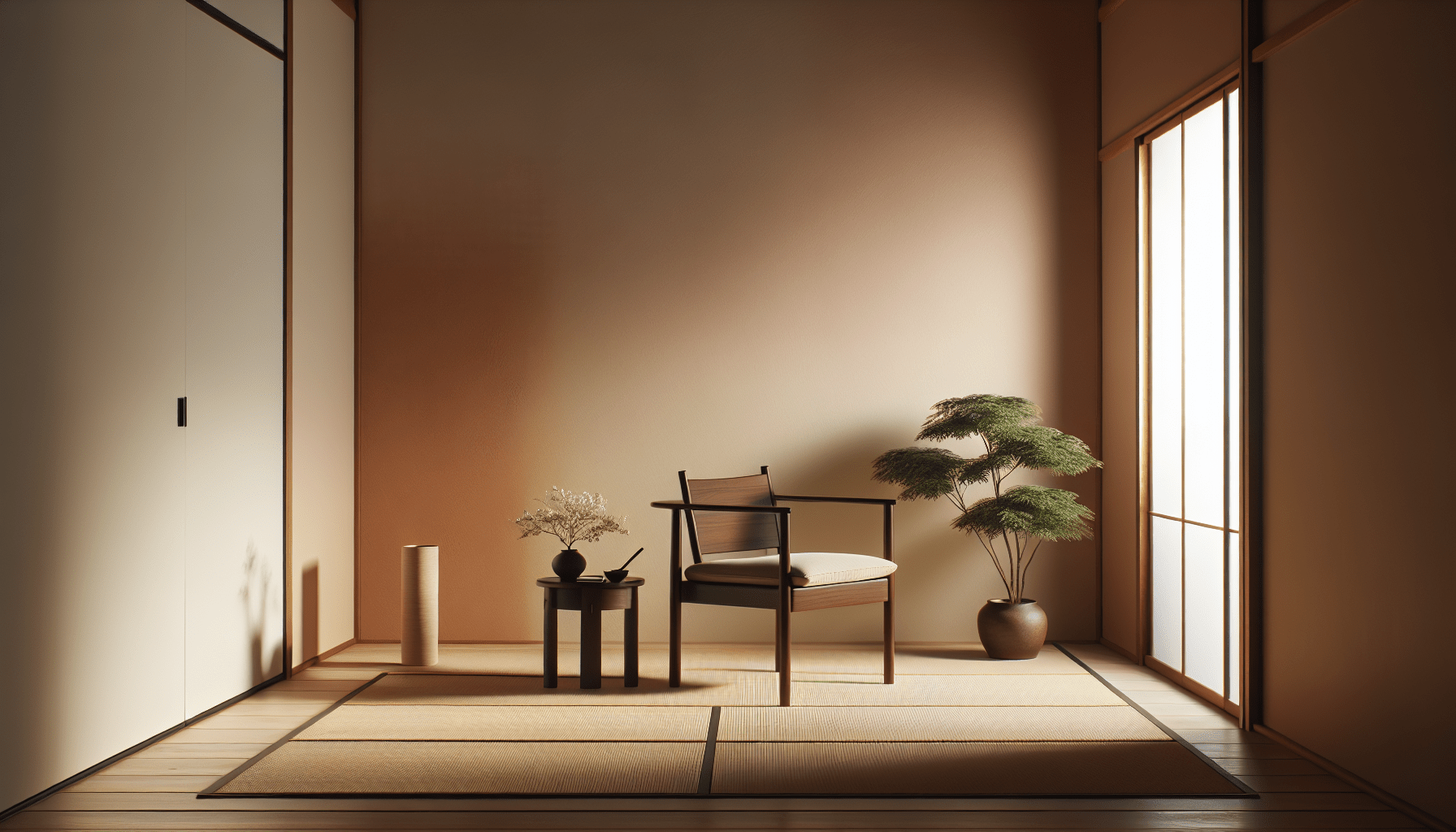What are the best Japandi wall color combinations? If you’re looking to create a serene and minimalistic space in your home, you’ve likely come across the Japandi design style. This beautiful blend of Japanese and Scandinavian aesthetics focuses on clean lines, simplicity, and natural materials. Color plays a vital role in this style, so let’s dive into some stunning wall color combinations that perfectly embody the Japandi spirit.
Understanding the Japandi Style
Before we talk about colors, it’s essential to grasp what Japandi design is all about. Imagine a space that feels calm and inviting, where every element serves a purpose. Japandi is all about harmony, blending the warmth of Scandinavian designs with the elegance of Japanese decor. This style emphasizes natural materials, functional furniture, and a neutral palette, creating a soothing environment.
Key Elements of Japandi Design
To truly embrace the Japandi style, here are the primary features to consider:
- Natural Materials: Incorporate wood, bamboo, linen, and stone to bring the outdoors in.
- Minimalism: Opt for fewer, high-quality furnishings rather than an abundance of decorations.
- Neutral Color Palette: Use soft, muted colors that promote tranquility.
- Functionality: Choose furniture and decor items that serve a purpose while being visually appealing.
Understanding these elements will help you choose wall color combinations that resonate with this style.
The Importance of Color in Japandi
Color can transform a space, setting the mood and enhancing the overall aesthetic. When it comes to Japandi, the right wall colors can create a blank canvas for your furniture and decor while maintaining an air of warmth and coziness. Neutral colors work beautifully in this style, complemented by natural tones that reflect the beauty of the outdoors.
Choosing the Right Wall Colors
Selecting wall colors that align with the Japandi design principles can be exciting yet overwhelming. You want colors that not only look good but also feel good. Consider these options:
- Soft Whites and Creams: These colors enhance brightness and create an airy feel.
- Earthy Tones: Rich browns, muted greens, and soft grays add warmth and a connection to nature.
- Pastel Shades: Light blush, pale blues, and gentle taupes can introduce subtle color without overwhelming the space.
Now, let’s look at some fabulous color combinations that can bring your Japandi vision to life.
Classic Japandi Color Combinations
1. Warm Whites with Earthy Tones
Combining warm whites with earthy hues creates a soothing, inviting ambiance. The white provides a clean backdrop, while earthy tones like terracotta or warm beige add depth and warmth.
Suggested Combinations:
- Wall: Soft Cream
- Accent: Terracotta
- Furniture: Dark wood for contrast
This combination promotes a sense of calm, making it ideal for living rooms or bedrooms.
2. Soft Grays and Pale Blues
If you prefer a cooler palette, consider soft grays paired with pale blues. This blend evokes a serene and tranquil environment, perfect for a stress-free zone.
Suggested Combinations:
- Wall: Light Gray
- Accent: Pale Blue
- Furniture: Light-colored wood
Such colors inspire peace and are perfect for bedrooms or home offices.
3. Natural Greens with Whites
Nature often provides the best color inspiration. Pairing soft greens with white can mimic the outdoors, bringing a fresh, vibrant energy to your space.
Suggested Combinations:
- Wall: Soft Green
- Accent: Crisp White
- Furniture: Bamboo or light wood
This combination works beautifully in kitchens or dining areas, creating a refreshing atmosphere.
Detailed Color Pairings for Specific Rooms
Living Room
The living room is often the heart of your home. Choose colors that create a warm, welcoming atmosphere while allowing for creativity in your decor.
Suggested Combinations:
| Wall Color | Accent Color | Furniture Color |
|---|---|---|
| Soft Beige | Dark Olive | Walnut Wood |
| Light Gray | Warm Terracotta | Light Maple |
| Creamy White | Dusty Rose | Natural Rattan |
These combinations invite comfort while still feeling modern and stylish.
Bedroom
In the bedroom, your color choices should encourage relaxation and peace. Aim for soft, calming colors that help you unwind.
Suggested Combinations:
| Wall Color | Accent Color | Furniture Color |
|---|---|---|
| Pale Lavender | Muted Taupe | Light Ash |
| Misty Blue | Slate Gray | Worn White |
| Soft White | Warm Sage | Natural Oak |
Each pairing creates a serene sanctuary for rest and rejuvenation.
Kitchen
The kitchen should feel bright and inviting, with colors that stimulate energy and creativity. Here are some combinations that work well:
Suggested Combinations:
| Wall Color | Accent Color | Furniture Color |
|---|---|---|
| Crisp White | Soft Mint | Ash Wood |
| Warm Beige | Duck Egg Blue | Dark Wood |
| Light Gray | Sunny Yellow | Natural Wood |
These choices enhance the culinary experience, making cooking more enjoyable.
The Impact of Accent Colors
Accent colors are the pop of personality that can really tie a room together. In a Japandi space, these colors should be used sparingly to maintain the overall simplicity of the design.
Using Accent Colors Wisely
When adding accent colors, consider the following:
- Limit Your Palette: Choose one or two accent colors that complement your main wall color.
- Choose Natural Elements: Use plants, textiles, or artwork to introduce accent colors rather than paint.
- Seasonal Changes: Feel free to change accent colors with the seasons; use cushions or throws to maintain freshness in your decor.
Embracing Textures with Color
Texture is just as crucial as color in your Japandi-inspired space. Combining different materials can create depth and interest in an otherwise minimalistic design.
Incorporating Textures
- Textiles: Use linen, wool, and cotton for rugs, curtains, and cushions to add warmth.
- Natural Elements: Consider wooden furniture, stone accents, or clay pottery for a rustic touch.
- Layering: Combine various textures within the same color family to keep your space visually appealing.
Lighting and Its Influence on Color
Lighting can drastically change how your chosen wall colors appear. Natural light will make colors look different than artificial lighting, so consider the following when planning your color scheme:
Types of Lighting
- Natural Light: Bright, direct sunlight can wash out colors, while softer morning or evening light can enrich them.
- Warm Artificial Lighting: Incandescent bulbs can add warmth, enhancing earthy tones.
- Cool Lighting: LED bulbs give a more clinical feel, which may not align with the warmth of Japandi style.
Test your colors in different lighting to ensure they maintain the desired mood you want to achieve.
Real-Life Japandi Inspirations
Looking for some real-life inspiration? Here are ways others have made Japandi wall color combinations their own.
Example 1: Minimalist Apartment
A minimalist one-bedroom apartment embraced soft whites with subtle natural wood tones. The walls were painted in a creamy off-white, with plants adding green accents, creating a serene oasis in the city.
Example 2: Scandinavian Retreat
In a Scandinavian retreat, light gray walls paired with muted tones of forest green and soft pink created a cozy, inviting vibe. The use of natural textiles throughout added warmth to the cool color palette.
Example 3: Japandi Home Office
A home office designed with pale blue walls and natural bamboo furniture made for a tranquil workspace. Accented with potted plants and simple art decor, it encouraged productivity while maintaining a calm atmosphere.
Personalizing Your Japandi Space
While adhering to the Japandi style, don’t forget to inject a bit of your unique personality. Here’s how you can personalize your space:
Incorporating Personal Touches
- Artwork: Use minimalist prints or nature-inspired pieces that echo your color scheme.
- Family Heirlooms: Integrate meaningful objects or furniture that resonate with your style.
- Comfort Items: Don’t shy away from including personal touches like books or cherished photographs, as they add warmth and individuality.
Maintaining Your Color Palette
Once you’ve settled on your wall colors and combinations, keeping your space updated is vital. You can maintain your Japandi aesthetic by:
Regular Refreshes
- Seasonal Changes: Swap out textiles or decorative items to reflect the season, giving your space new life.
- Decluttering: Keeping your space minimal ensures it doesn’t feel overcrowded. Regular cleaning and decluttering can refresh your environment.
- Routine Updates: As trends change, you might find it beneficial to repaint or redecorate occasionally, ensuring your space continues to resonate with you.
Conclusion
Finding the perfect wall color combinations for your Japandi-inspired space allows you to create a sanctuary of tranquility and peace. By focusing on natural materials, a neutral color palette, and the harmonious mix of Japanese and Scandinavian styles, you’re sure to generate an inviting atmosphere. Remember, the goal is to create a space that feels uniquely yours while adhering to the timeless principles of Japandi design. Embrace these color combinations, and you’ll soon find yourself enjoying a beautifully balanced home environment.

